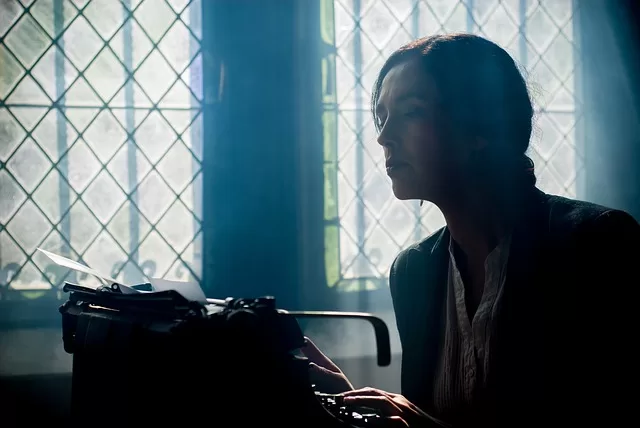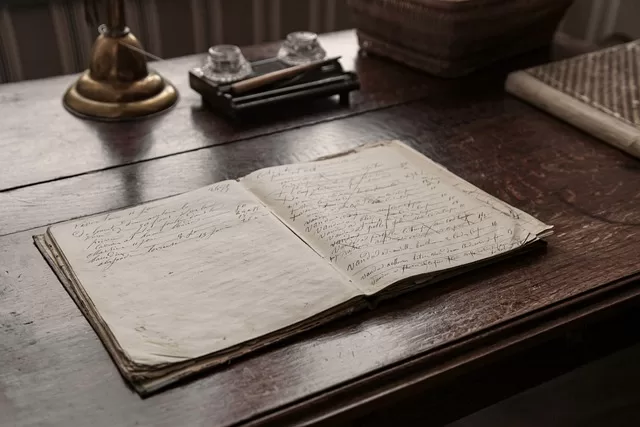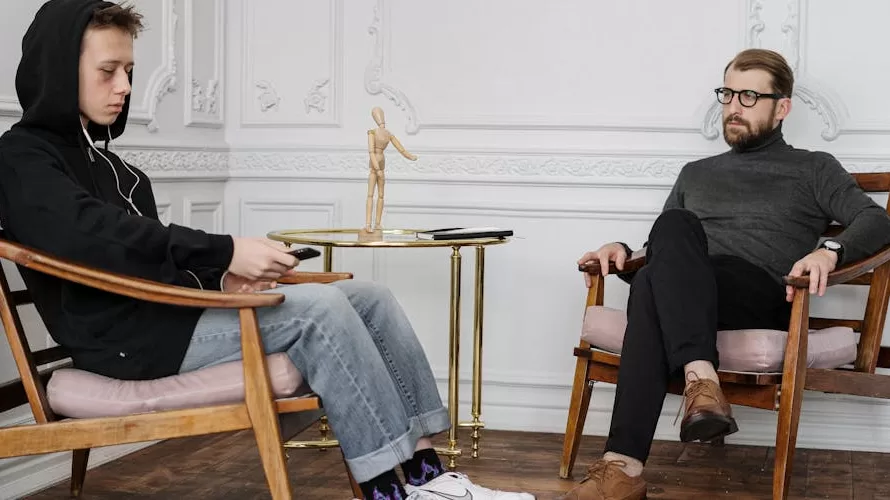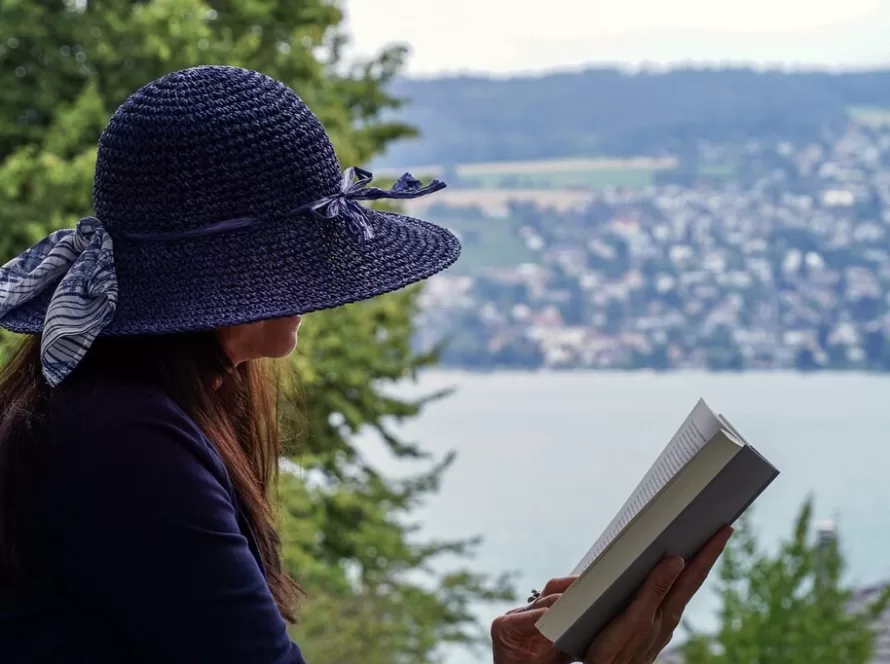In the vast space of literature, a select few writers have managed to fascinate the world with their mastery of words and storytelling. As we delve into the 21st century, it becomes increasingly important to acknowledge the literary legends that have emerged during this modern era. From thought-provoking novels to powerful poetry, these writers have left an indelible mark on the literary landscape.
In this article, we will unveil the best writers of the 21st century, shining a spotlight on their works and exploring the impact they have had on readers around the globe. From established authors who continue to wow us with their imaginative narratives to emerging voices who challenge the status quo, we will delve into the diverse genres and styles that define this new generation of literary greatness.
Read along as we celebrate the power of words and the creative minds that have shaped the literary world in the 21st century. From their unique perspectives to their ability to evoke emotion, these writers are truly the epitome of literary legends.
Criteria for determining the best writers
Determining the best writers of the 21st century is a complex and subjective task, as literature is a vast and diverse field with many talented individuals contributing to its evolution. However, certain criteria can be used to identify the literary legends who have truly made an impact on the contemporary literary landscape.
One of the primary factors to consider is the critical acclaim and recognition received by the writer. This includes prestigious literary awards, such as the Pulitzer Prize, the Booker Prize, the National Book Award, and the Nobel Prize in Literature, which serve as a testament to the writer’s exceptional talent and the lasting impact of their work. These accolades validate the writer’s literary prowess, bring attention to their contributions, and inspire future writers.
Another important criterion is the writer’s ability to engage readers through their unique storytelling, poetic expression, or non-fiction narratives. The best writers of the 21st century have the power to transport readers to new worlds, challenge their perspectives, and evoke deep emotional responses. Their works must demonstrate a mastery of language, a profound understanding of the human experience, and a willingness to explore complex themes and ideas.
Additionally, a writer’s work’s longevity and enduring influence are crucial factors in determining their status as a literary legend. The best writers are those whose works continue to be read, studied, and celebrated long after their initial publication, influencing subsequent generations of writers and readers alike. Their impact on the literary canon and their ability to shape the direction of literature are also important considerations.

Literary legends in different genres – fiction, non-fiction, poetry

In the realm of 21st-century literature, numerous writers have emerged as true literary legends, each making their mark in various genres, from fiction to non-fiction to poetry.
In the realm of fiction, authors such as Haruki Murakami, Chimamanda Ngozi Adichie, and Margaret Atwood have captivated readers with their imaginative narratives, complex character development, and thought-provoking explorations of societal issues. Murakami’s surreal and introspective novels, such as “The Wind-Up Bird Chronicle” and “Kafka on the Shore,” have earned him a dedicated global following, while Adichie’s acclaimed works, including “Half of a Yellow Sun” and “Americanah,” have delved into the nuances of identity, culture, and the human experience. Margaret Atwood, a literary giant, has continued to push the boundaries of fiction with her dystopian masterpieces, such as “The Handmaid’s Tale” and “The Testaments,” which have resonated with readers and inspired critical discussions on power, gender, and the human condition.
In the realm of non-fiction, writers like Ta-Nehisi Coates, Naomi Klein, and Rebecca Solnit have wielded their pens to shed light on pressing social, political, and environmental issues. Coates’ “Between the World and Me,” a powerful exploration of race and the Black experience in America, has been hailed as a seminal work of modern non-fiction. Naomi Klein’s “This Changes Everything” and “The Shock Doctrine” have been instrumental in shaping the global discourse on climate change and the impacts of neoliberal capitalism, while Solnit’s “Men Explain Things to Me” and “A Paradise Built in Hell” have offered insightful perspectives on gender, power, and human resilience.
In the realm of poetry, the 21st century has seen the emergence of literary legends such as Rupi Kaur, Claudia Rankine, and Ocean Vuong. Kaur’s raw and emotive collections, including “Milk and Honey” and “The Sun and Her Flowers,” have resonated with a wide audience, particularly among younger readers, and have been praised for their ability to capture the complexities of love, loss, and the human experience. Rankine’s “Citizen: An American Lyric” has been lauded for its powerful exploration of racial injustice and the lived experiences of Black Americans, while Vuong’s poetic masterpiece, “On Earth We’re Briefly Gorgeous,” has been celebrated for its lyrical beauty and its examination of identity, sexuality, and the immigrant experience.
Notable works of literary legends
The literary legends of the 21st century have each left an indelible mark on the literary landscape through their remarkable works, which have intrigued, challenged, and inspired readers around the world.
In the realm of fiction, Haruki Murakami’s “The Wind-Up Bird Chronicle” is a sprawling, dreamlike narrative that delves into the depths of the human psyche, blending elements of magical realism with a complex exploration of identity, loss, and the search for meaning. Chimamanda Ngozi Adichie’s “Americanah” is a sweeping, multi-layered novel that examines the nuances of race, identity, and the immigrant experience, while Margaret Atwood’s “The Handmaid’s Tale” and “The Testaments” have become modern classics, offering chilling yet prescient warnings about the dangers of authoritarianism and the erosion of women’s rights.
In the realm of non-fiction, Ta-Nehisi Coates’ “Between the World and Me” is a poignant and powerful exploration of the Black experience in America, written in the form of a letter to his teenage son. Naomi Klein’s “This Changes Everything” is a seminal work that has shaped the global discourse on climate change, offering a comprehensive analysis of the systemic challenges and potential solutions to the environmental crisis. Rebecca Solnit’s “Men Explain Things to Me” is a collection of essays that have become essential reading in the ongoing conversation about gender, power, and the silencing of women’s voices.
In the realm of poetry, Rupi Kaur’s “Milk and Honey” and “The Sun and Her Flowers” have resonated with a wide audience, particularly among younger readers, for their raw, emotive, and deeply personal explorations of themes such as love, loss, and healing. Claudia Rankine’s “Citizen: An American Lyric” is a groundbreaking work that blends poetry, prose, and visual elements to confront the realities of racial injustice and the lived experiences of Black Americans. Ocean Vuong’s “On Earth We’re Briefly Gorgeous” is a poetic masterpiece that delves into the complexities of identity, sexuality, and the immigrant experience, with a lyrical and evocative style that has captivated readers and critics alike.
Impact of the literary legends on contemporary literature
The literary legends of the 21st century have had a profound and lasting impact on the contemporary literary landscape, shaping the direction of literature and inspiring new generations of writers and readers.
One of the most significant impacts of these literary giants is their ability to challenge and expand the boundaries of their respective genres. Authors like Haruki Murakami, Chimamanda Ngozi Adichie, and Margaret Atwood have pushed the limits of fiction, blending genres, experimenting with narrative structures, and tackling complex themes that resonate with the modern reader. Their works have inspired and influenced a new wave of writers to explore the full potential of the written word.
In non-fiction, writers like Ta-Nehisi Coates, Naomi Klein, and Rebecca Solnit have elevated the genre, demonstrating the power of non-fiction to illuminate pressing social, political, and environmental issues. Their works have sparked critical discussions, shaped public discourse, and inspired activism, ultimately contributing to a deeper understanding of the world and the challenges we face.
Similarly, in the field of poetry, the literary legends of the 21st century have redefined the genre, bringing it to the forefront of contemporary literature. Poets like Rupi Kaur, Claudia Rankine, and Ocean Vuong have cultivated a new generation of poetry readers, captivating audiences with their raw, emotive, and socially conscious works. Their impact can be seen in the growing popularity of poetry, particularly among younger readers, and in the way they have challenged traditional notions of what poetry can be and do.
Beyond their contributions, the literary legends of the 21st century have also played a crucial role in diversifying the literary landscape, amplifying marginalized voices, and challenging dominant narratives. Their works have given a platform to underrepresented communities, offering readers a more nuanced and inclusive representation of the human experience. This has enriched the literary canon and paved the way for a more diverse and inclusive literary ecosystem, inspiring and empowering a new generation of writers to share their stories and perspectives.
Literary awards and recognition received by the legends
The literary legends of the 21st century have been widely recognized and celebrated for their exceptional contributions to the literary world, with many receiving prestigious awards and accolades that underscore their enduring impact.
In the realm of fiction, Haruki Murakami has been the recipient of numerous awards, including the Franz Kafka Prize, the Jerusalem Prize, and the Prinz-von-Asturien-Preis. Chimamanda Ngozi Adichie has been honored with the Orange Prize for Fiction, the National Book Critics Circle Award, and the MacArthur Fellowship, while Margaret Atwood has been awarded the Booker Prize, the Giller Prize, and the Franz Kafka Prize, among other prestigious accolades.
In the non-fiction genre, Ta-Nehisi Coates has been recognized with the National Book Award, the Hillman Prize, and the MacArthur Fellowship, for his powerful and influential works. Naomi Klein has been awarded the Sydney Peace Prize, the Hilton Humanitarian Prize, and the Lannan Cultural Freedom Prize, in recognition of her groundbreaking contributions to the global discourse on climate change and social justice. Rebecca Solnit’s works have been honored with the Kirkus Prize, the Windham-Campbell Prize, and the National Book Critics Circle Award, among other prestigious awards.
The literary legends in the realm of poetry have also been widely celebrated for their contributions to the art form. Rupi Kaur’s works have been recognized with the Goodreads Choice Award, the Indie Book Award, and the Canadian Authors Association Award. Claudia Rankine has received the Bobbitt National Prize for Poetry, the Kingsley Tufts Poetry Award, and the Poets’ Prize, while Ocean Vuong has been awarded the T.S. Eliot Prize, the Whiting Award, and the MacArthur Fellowship, among other accolades.
These prestigious awards and recognitions not only validate the exceptional talent and creativity of these literary legends but also serve to elevate their works, inspiring new generations of writers and readers to engage with the transformative power of literature. The impact of these awards extends beyond the individual authors, as they contribute to the ongoing evolution and enrichment of the literary canon, shaping the cultural discourse and inspiring critical discussions on the role of literature in our society.

Influences and inspirations of the literary legends
The literary legends of the 21st century have been shaped by a diverse array of influences and inspirations, drawing from their personal experiences, cultural backgrounds, and the literary traditions that have come before them.
For authors like Haruki Murakami, the rich tapestry of Japanese literature and culture, as well as the philosophical and existential themes explored by writers such as Yukio Mishima and Ryūnosuke Akutagawa, have been instrumental in shaping his unique narrative style and thematic preoccupations. Murakami’s works often blend elements of magical realism, surrealism, and a deep exploration of the human psyche, reflecting the influence of both Eastern and Western literary traditions.
Chimamanda Ngozi Adichie’s writing has been shaped by her Nigerian heritage and the complex history of her homeland, as well as the literary legacies of African writers like Chinua Achebe and Wole Soyinka. Adichie’s works delve into the nuances of identity, culture, and the immigrant experience, often drawing on her journey and the collective experiences of the African diaspora.
Margaret Atwood, on the other hand, has been heavily influenced by the dystopian and speculative fiction traditions, as well as the rich literary heritage of her native Canada. Her works, such as “The Handmaid’s Tale” and “The Testaments,” are often seen as cautionary tales that reflect the sociopolitical realities of the contemporary world, drawing on themes of power, gender, and the human condition.
In the realm of non-fiction, Ta-Nehisi Coates has been inspired by the rich tradition of African-American literature, as well as the civil rights movement and the ongoing struggle for racial justice. His works, such as “Between the World and Me,” are deeply rooted in the lived experiences of Black Americans and the complex history of systemic racism in the United States.
Naomi Klein’s writing has been shaped by her activism and her commitment to addressing pressing social and environmental issues, drawing on the work of thinkers and theorists in the fields of political economy, climate science, and social justice. Her works, such as “This Changes Everything” and “The Shock Doctrine,” are often seen as seminal contributions to the global discourse on the intersections of capitalism, climate change, and social inequality.
Similarly, the literary legends in the realm of poetry, such as Rupi Kaur, Claudia Rankine, and Ocean Vuong, have been influenced by a diverse range of literary and cultural traditions, from the confessional poetry of Sylvia Plath to the social and political engagement of Audre Lorde. Their works often reflect deeply personal experiences, as well as a keen awareness of the broader social and political landscapes that shape the human condition.
Emerging writers who show potential to become future legends
As we celebrate the literary legends of the 21st century, it is important to also recognize the emerging writers who have the potential to become the literary giants of the future. These talented individuals are pushing the boundaries of their respective genres. Offering fresh perspectives, and grabbing readers with their unique voices and storytelling abilities.
In fiction, authors like Esi Edugyan, Tommy Orange, and Yaa Gyasi have been garnering critical acclaim for their powerful and thought-provoking works. Edugyan’s “Washington Black” is a sweeping historical novel that explores the complexities of slavery and the human experience, while Orange’s “There There” offers a nuanced and poignant portrait of urban Native American life. Yaa Gyasi’s “Homegoing” is a multi-generational saga that traces the legacy of slavery and the African diaspora, showcasing her remarkable talent for crafting intricate and emotionally resonant narratives.
In non-fiction, writers like Jia Tolentino, Hanif Abdurraqib, and Imani Perry have been stunning readers with their insightful and engaging works. Tolentino’s essay collection, “Trick Mirror,” delves into the complexities of modern life, exploring topics such as social media, feminism, and the pursuit of authenticity. Abdurraqib’s “They Can’t Kill Us Until They Kill Us” is a powerful and poetic exploration of music, culture, and the human experience, while Imani Perry’s “South to America” offers a deeply personal and illuminating perspective on the history and culture of the American South.
In poetry, emerging writers like Morgan Parker, Danez Smith, and Natalie Diaz have been garnering widespread acclaim for their innovative and socially conscious works. Parker’s “There Are More Beautiful Things Than Beyoncé” and “Magical Negro” tackle issues of race, gender, and identity with a bold and unapologetic voice, while Smith’s “Don’t Call Us Dead” and “Homie” blend lyrical beauty with a powerful exploration of the Black experience. Natalie Diaz’s “When My Brother Was an Aztec” and “Postcolonial Love Poem” have been praised for their lyrical virtuosity and their nuanced engagement with themes of indigeneity, sexuality, and the human condition.
These emerging writers, among many others, are poised to become the literary legends of the future, building upon the foundations laid by the literary giants of the 21st century. Their works not only intrigue and inspire readers but also push the boundaries of their respective genres, offering new perspectives and challenging the status quo. As we continue to celebrate the enduring legacy of the literary legends, we must also keep a watchful eye on these promising voices, who will undoubtedly shape the literary landscape for generations to come.
Reader’s perspective on the literary legends
The literary legends of the 21st century have captured the hearts and minds of readers around the world, inspiring a deep and lasting appreciation for the power of the written word. Through their exceptional works, these writers have not only entertained and captivated their audiences but have also challenged them to engage with complex themes, expand their perspectives, and grapple with the realities of the human experience.
For many readers, the works of these literary giants have been transformative, offering a window into worlds and experiences that may have been previously unknown or unexplored. The imaginative narratives of authors like Haruki Murakami, Chimamanda Ngozi Adichie, and Margaret Atwood have transported readers to realms of magical realism and dystopian futures, leaving an indelible mark on their consciousness.














































































































